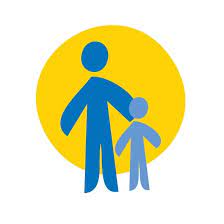A person has been diagnosed with measles in Northeast Iceland
20th April 2024
The Chief Epidemiologist received a notification last night because of measles that had been diagnosed in an adult in North Iceland. Suspicion arose of measles and the diagnosis was confirmed afterwards. The person in question is in isolation in his/her home.
Measles is a highly contagious, virulent disease that spreads from the respiratory tract. Symptoms can occur in the infected person 1-3 weeks after infection. Symptoms are mainly fever, anxiety symptoms, redness of the eyes and/or skin rash. More information on measles can be found here.
Smithed
Measles is generally contagious for four days before and four days after the appearance of the rash (longer if it persists with symptoms such as fever). Unvaccinated people are at risk of infection and illness. Those who have been vaccinated for measles twice, or have had measles before, are very unlikely to become infected, but if it happens, the symptoms are usually mild.
The risk for the unvaccinated is present:
In Þórshöfn, especially among the sick colleagues, who will receive information about the infection from their employer.
Among those who attended the Multicultural Festival in Vopnafjörður on Sunday, April 14th.
In certain circumstances in Akureyri, the person concerned has been contacted.
Infection Prevention
Those who think they have measles, we encourage you to contact the nearest healthcare center by telephone (1700) or via online chat Heilusveru. Please do not show up at the healthcare center or patient centre without first contact, except in emergency situations.
Those who have no symptoms but are possibly exposed to infection, especially those who are not vaccinated against measles and who have not had measles before, should stay put and be alert to symptoms for 3 weeks after exposure.
In particular, contact with vulnerable individuals such as pregnant women, children under 5 years of age, individuals in healthcare institutions and nursing homes should be avoided. Healthcare professionals in these situations need to receive special guidance from their workplace.
More about the mists here.
Vaccination
Vaccination against measles is with two doses of the MMR vaccine (protection against measles, mumps and rubella). In Iceland, vaccination is given at 18 months of age and at 12 years of age. As infections have occurred, doses will be accelerated as appropriate, but two doses after 12 months of age is considered full vaccination for life, although the practice is for a second dose to be given to 12 year old children in Iceland.
If you think you need to be vaccinated against measles, contact your healthcare clinic by telephone or via the Healthcare Network.
The Chief Epidemiologist
